POSITIVE VIBES ONLY
Zespri AIMS Games partners with Sport Bay of Plenty and Sport Waikato to promote Positive Vibes Only throughout the event.
So, what is Positive Vibes Only?
The highly successful Positive Vibes Only campaign was originally piloted by Sport Waikato and Hamilton City Netball at the Upper North Island Secondary School (UNISS) Netball tournament in August 2023. Since then, a number of Regional Sport Organisations have started to roll out the campaign across their competitions and tournaments in a partnered effort to address negative sideline behaviour and raise the standards of positive sideline support.
The campaign really drills down to the ‘why’– why are some supporters negative, do they know they’re being negative or affecting the players, and how can we help them to understand the implications of their actions? With a focus on positivity and helping people to change their language and behaviour rather than highlighting the negativity, the campaign is about creating environments for all participants to enjoy whether you are a player, coach, supporter, parent, official or administrator. At the end of the day, we want everyone to continue to enjoy sport and be involved for life.
The Zespri AIMS Games isn’t just about winning, it’s about participating and giving it your best. We want everyone at the event to have an incredible tournament experience, whether their role is on or off the field.
Look out for the Positive Vibes Only ambassadors at the Zespri AIMS Games, bringing the vibe to the sidelines!
What can you do to show your support?
Accessorize in pink! Hair ribbons, t-shirts, tutus or even face paint!
Make sure that you, your team and their supporters are familiar with the Zespri AIMS Games Fairplay Oath. It is a core focus of the event and what we expect from our participants.
Talk to your team about the Zespri AIMS Games Sportsmanship Medals and the attributes that are looked for when awarding these.
Encourage your sideline supporters by reminding them it’s ‘positive vibes only!’
Positive Vibes Only Parents, Coaches, Managers & Supporters Guides


Positive Vibes Only is about creating environments that are enjoyable for all, whether you are a player, coach, referee, administrator or supporter.
We know that the top reasons young people play sport are to have fun, be with their friends, develop, and learn new skills.
By challenging all those involved in sport to encourage ‘Positive Vibes Only’ as the new standard, we strive to lift the bar on what behaviours are acceptable in our youth sporting environments.
We also know that when coaches, officials and volunteers are recognised, supported and valued, they are much more likely to stay involved.
There’s a responsibility on all of us to ensure that we are creating environments that prioritise fun and enjoyment - no matter the event, code or scoreline!
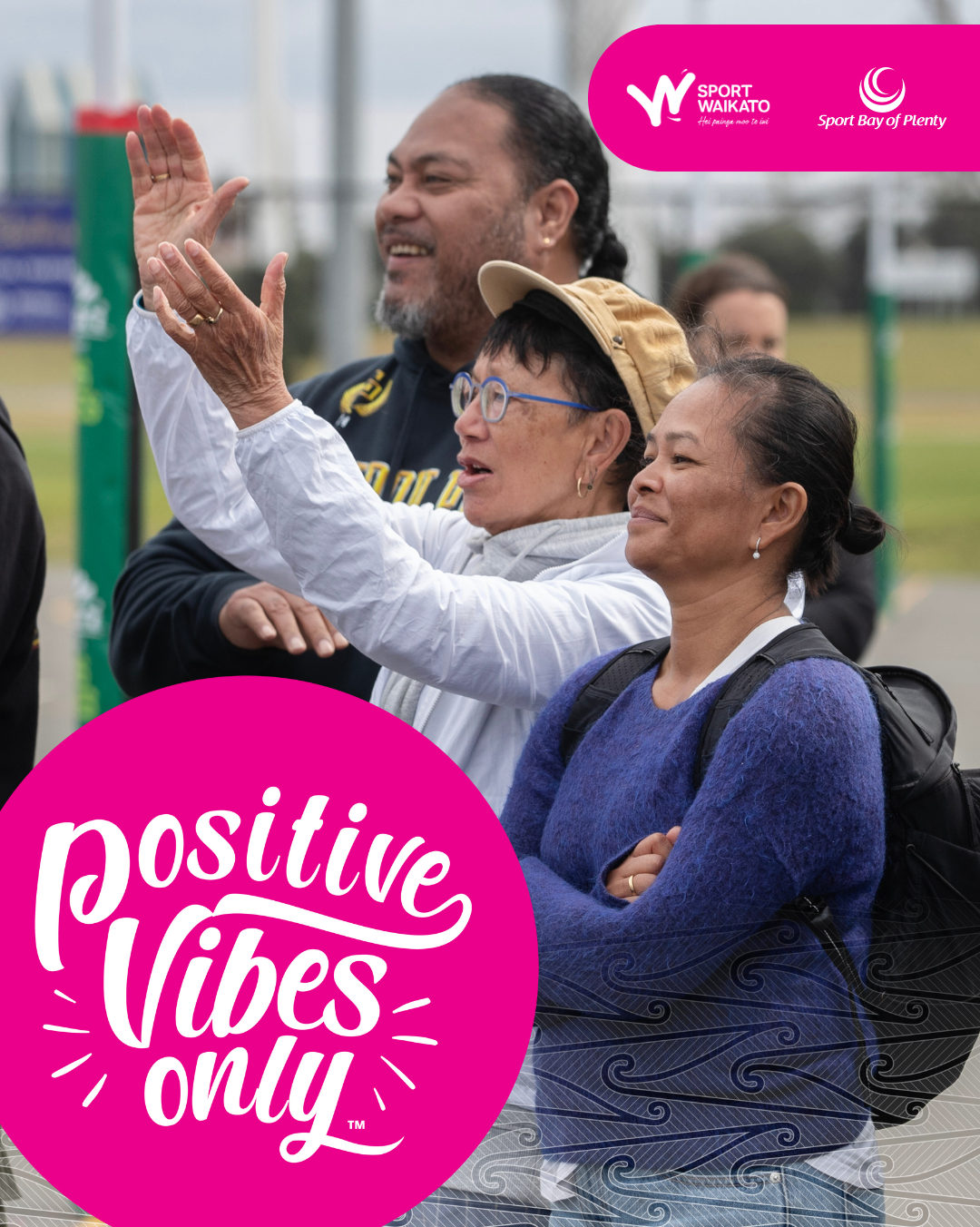
Did you know that the majority of our youth sport coaches are whaanau or friends of the participants?
Many of them have learnt how to coach through their own experiences as players or by being coached, and may not have had access to formal training or coaching qualifications.
But that doesn’t make them poorly equipped to coach!
A key role of the coach is to really get to know their players/athletes and create a fun and safe learning environment that grows their love of being involved with sport.
This is how you can add to coach’s positive experience:
Let the coach do the coaching – players/athletes do not need to be overloaded with messages and instructions (sometimes supporters give instructions that may even contradict what the coach has said)
Share relevant information about your child with their coach to help them connect and understand how to best help them improve
Show appreciation and thanks for their effort and time
We’re all on the same team!
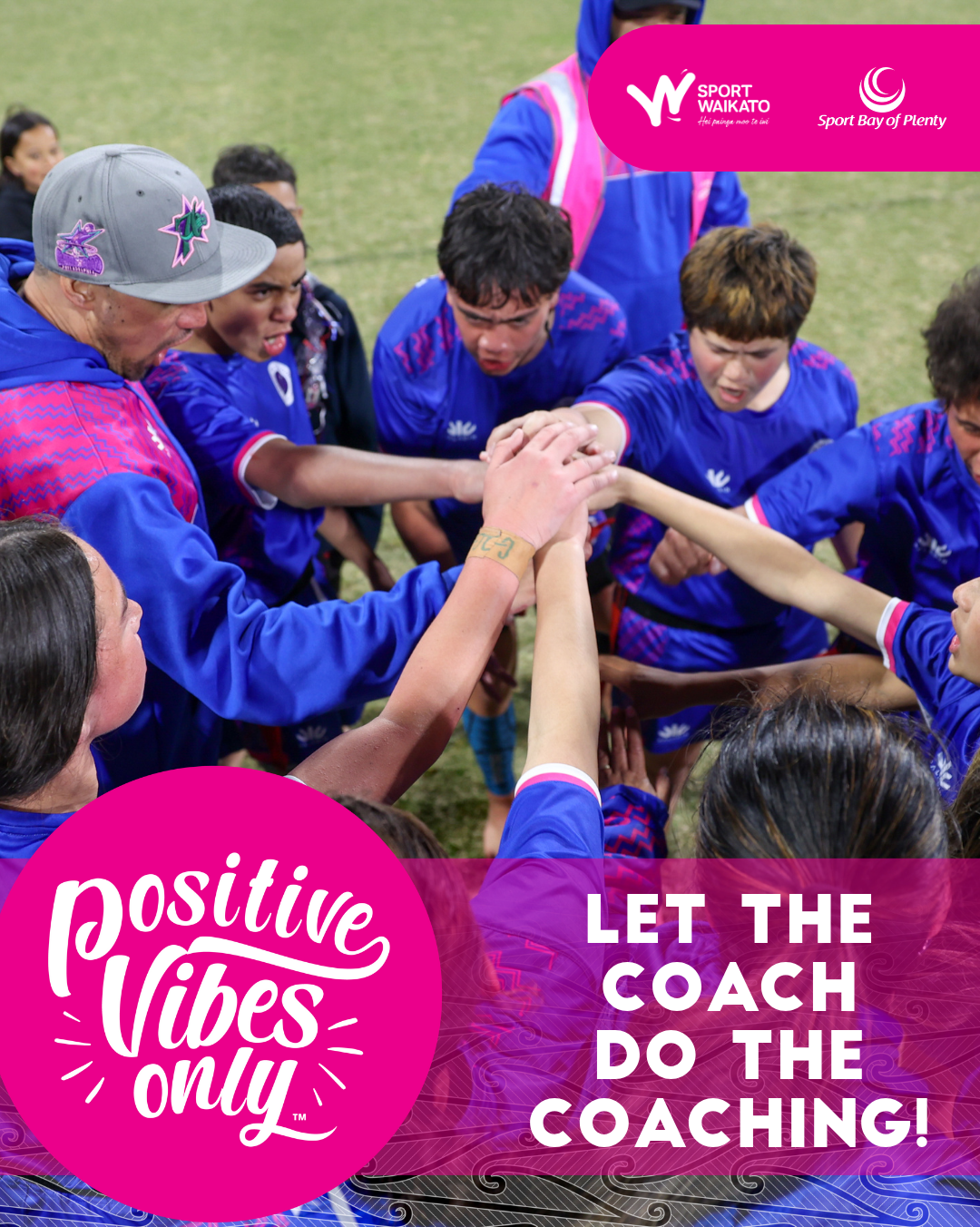
When we spoke to players about what they wanted sideline support to look like, they said: “Support and encourage both teams”, “Be kind! That’s someone’s child”, “Your words can affect how we play”, “Hype them up”.
It’s really easy to get caught up in the intensity of the game or competition, but often young people will respond and feed off our emotions.
We want them to stay composed and focused to perform, so creating environments that enable them to do that is key.
It’s also amazing how much more enjoyable it is to watch when you turn up without expectations about the outcome or how you want them to play!
Mostly, young people just want to know that they have your unconditional support, that you love them no matter what, and that you are proud of them. Give them your attention and your biggest smile!
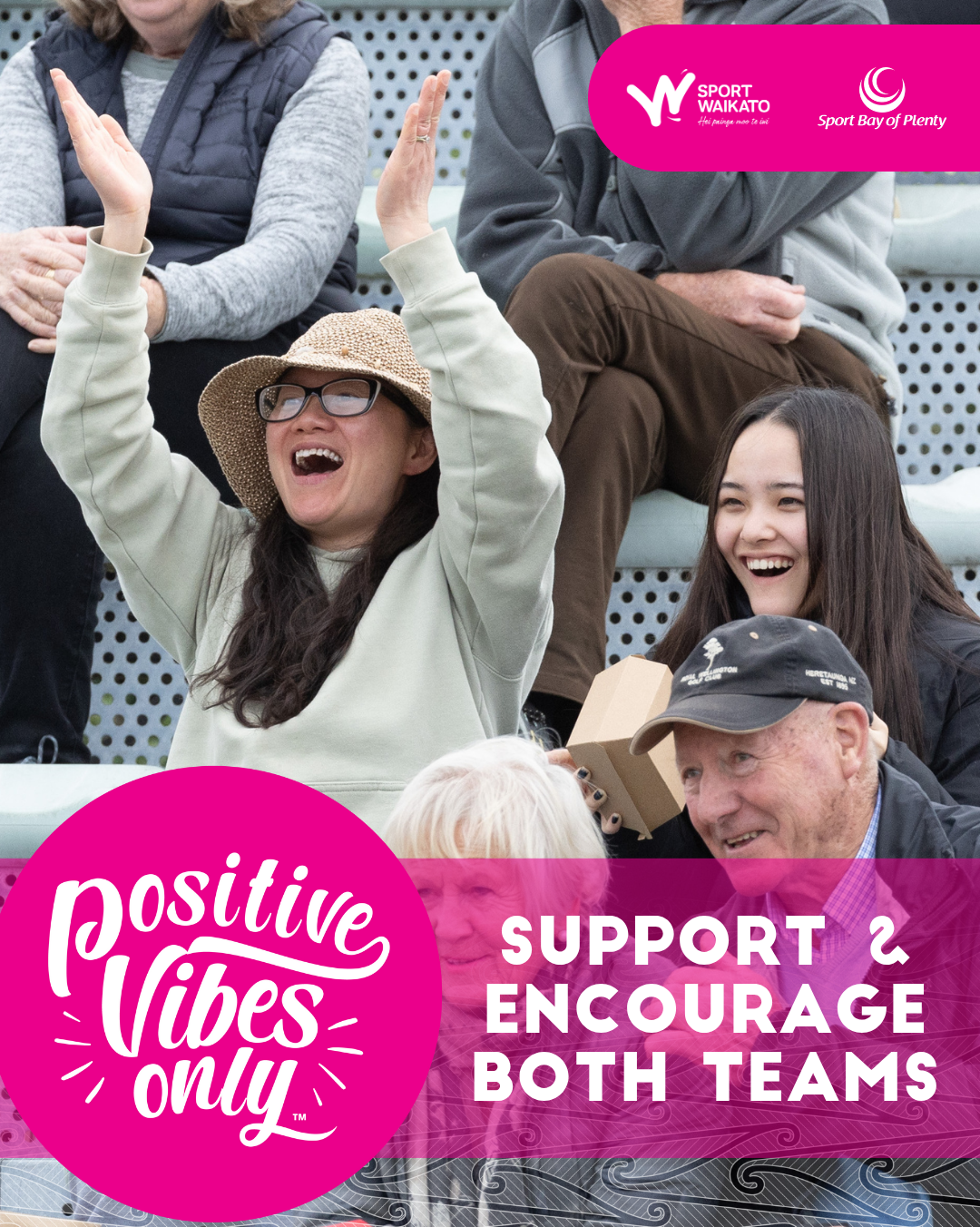
A mother was making scrambled eggs for breakfast. Suddenly, her daughter bursts into the kitchen.
“WHAT ARE YOU DOING? Crack the eggs with one hand, not two! That’s too many eggs. Quick get them in the pan, the pan is not hot enough right now. Turn them! Turn them now! I’ve told you this before, TURN THEM NOW! CAREFUL! Remember how I showed you how to salt them? Why aren’t you doing it like I showed you? That is TOO MUCH salt!”
The mother stared at her daughter. “What is wrong with you? You think I don’t know how to scramble eggs?”
The daughter calmly replied “I just wanted to show you what it feels like when I am trying to play…”
Our tamariki and rangatahi have enough to think about when they are playing, and coaches to help them when they need it. So, just let them play!
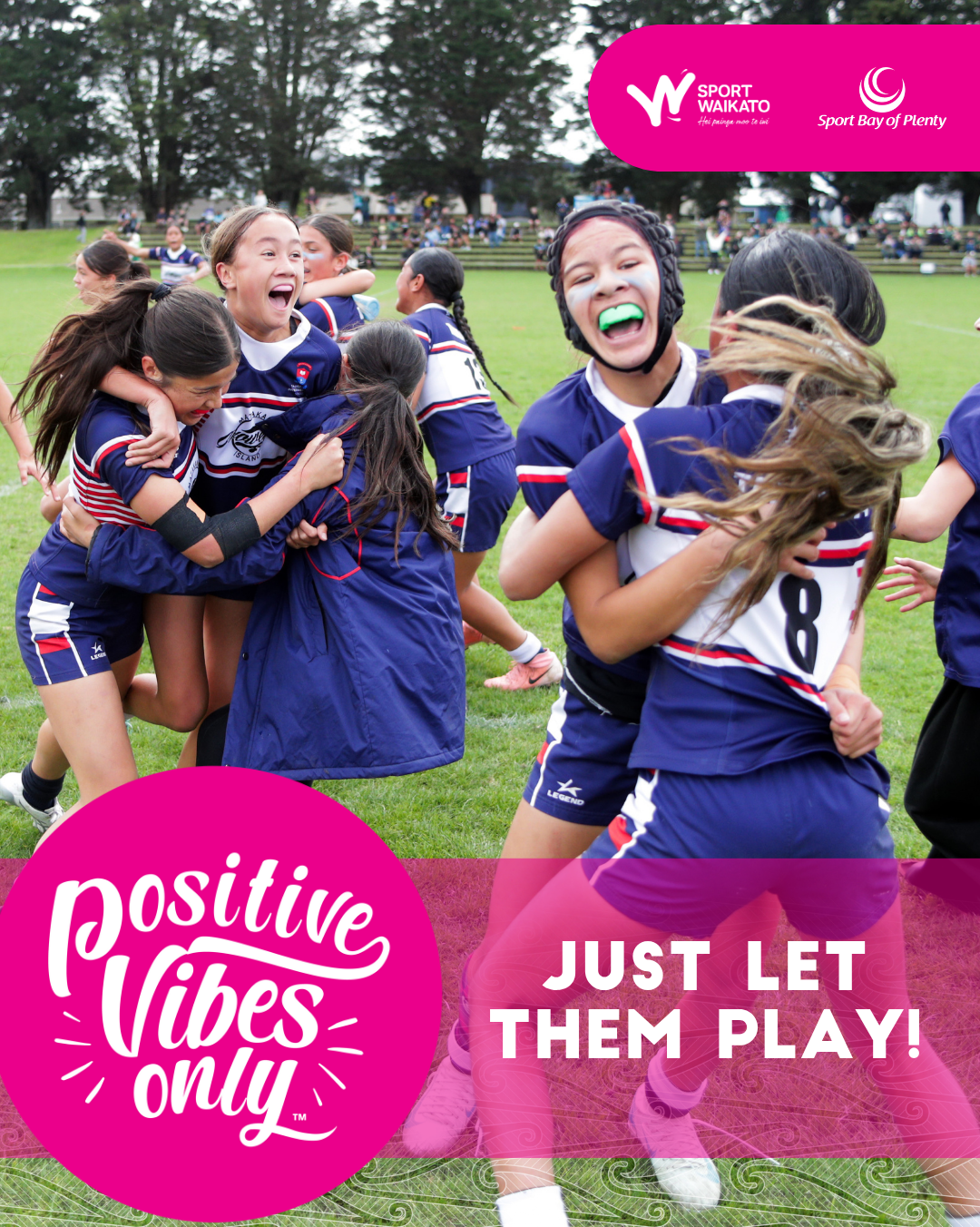
Sport, by nature, is competitive. We are usually trying to determine a winner and a loser. But what is on the scoreboard is not the only measure of success – or failure.
When we think about the value of sport, there are so many other factors that make it a positive and worthwhile experience.
Our experiences in sport can help to shape our mindset and approach in other areas of life. Being able to reflect on - and celebrate - more than just the result or outcome is the key to a lifelong love and enjoyment of sport.
Here are a few reflective questions you can ask your kids to help them take positives away from every practice, match or competition:
What is something you are proud of?
What did you enjoy the most?
What is something you learned?
What is something new that you tried today?
What did you find hard and how did you overcome that?
Wanting to win is important, but wanting to keep coming back to play is the best measure of success!
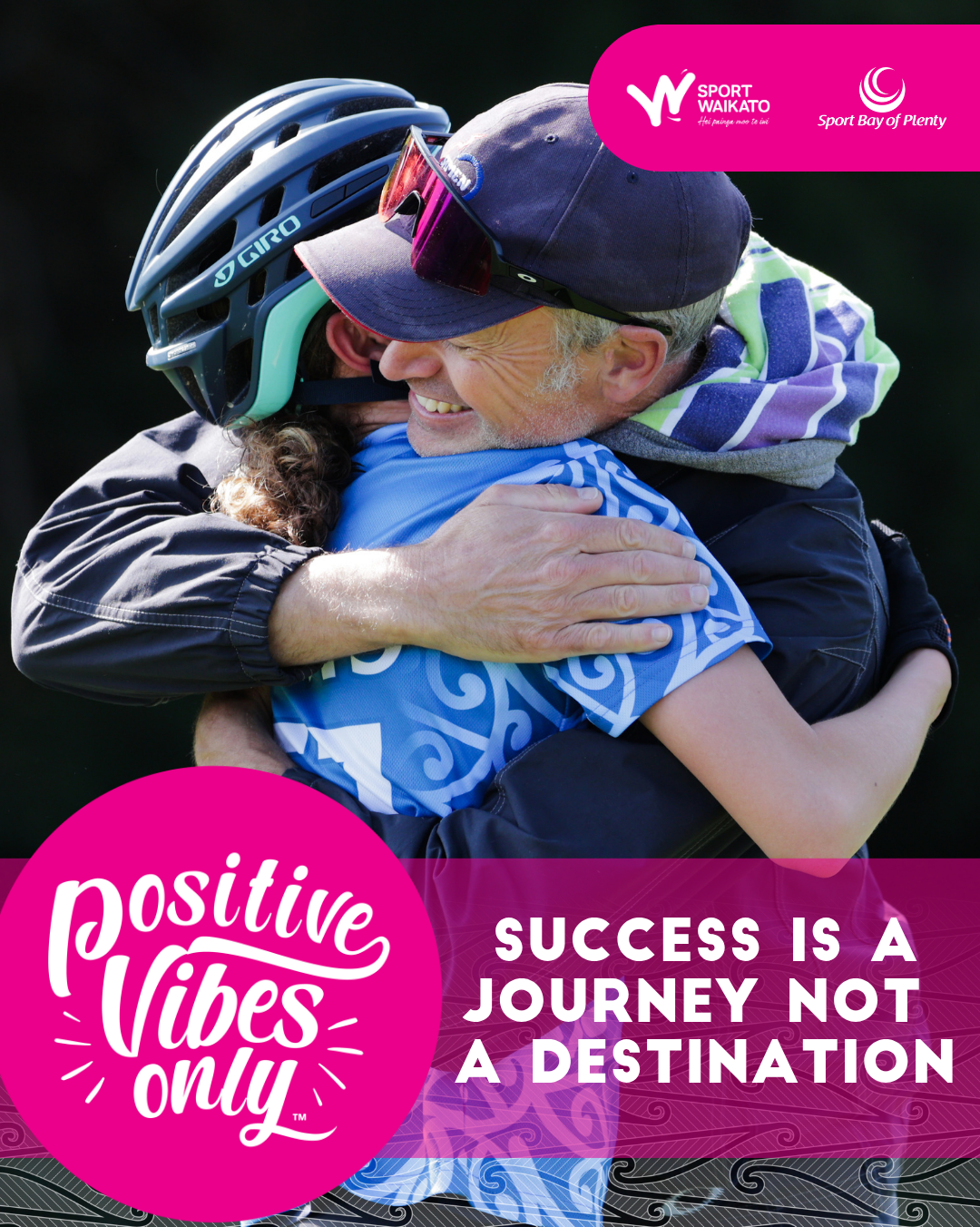
Most sport requires a referee, umpire, official or judge to make it happen. These people are the unsung heroes, giving up their time for our tamariki and our sports.
Our referees, umpires, officials and judges do what they do because they value what sport has to offer, they want sport to flourish and to be enjoyed. Will they make mistakes? At times. Are those mistakes intentional or made to deliberately disadvantage one team or athlete? No.
In 2023, netball umpires told us that negative sideline behaviour knocks their confidence and makes them want to give up umpiring. Here’s what they said they’d like to hear/see from the sidelines:
Keep feelings about calls to yourself (or say it quietly!)
Be understanding that umpiring isn’t as easy as it looks
Without these referees, umpires, officials and judges putting their hand up to officiate our children’s games, there wouldn’t be any sport for them to play! So show your support and recognition for them – our taonga – and recognise that they are volunteers doing the best they can for sport and for us.
He waka eke noa – we are all in this together!
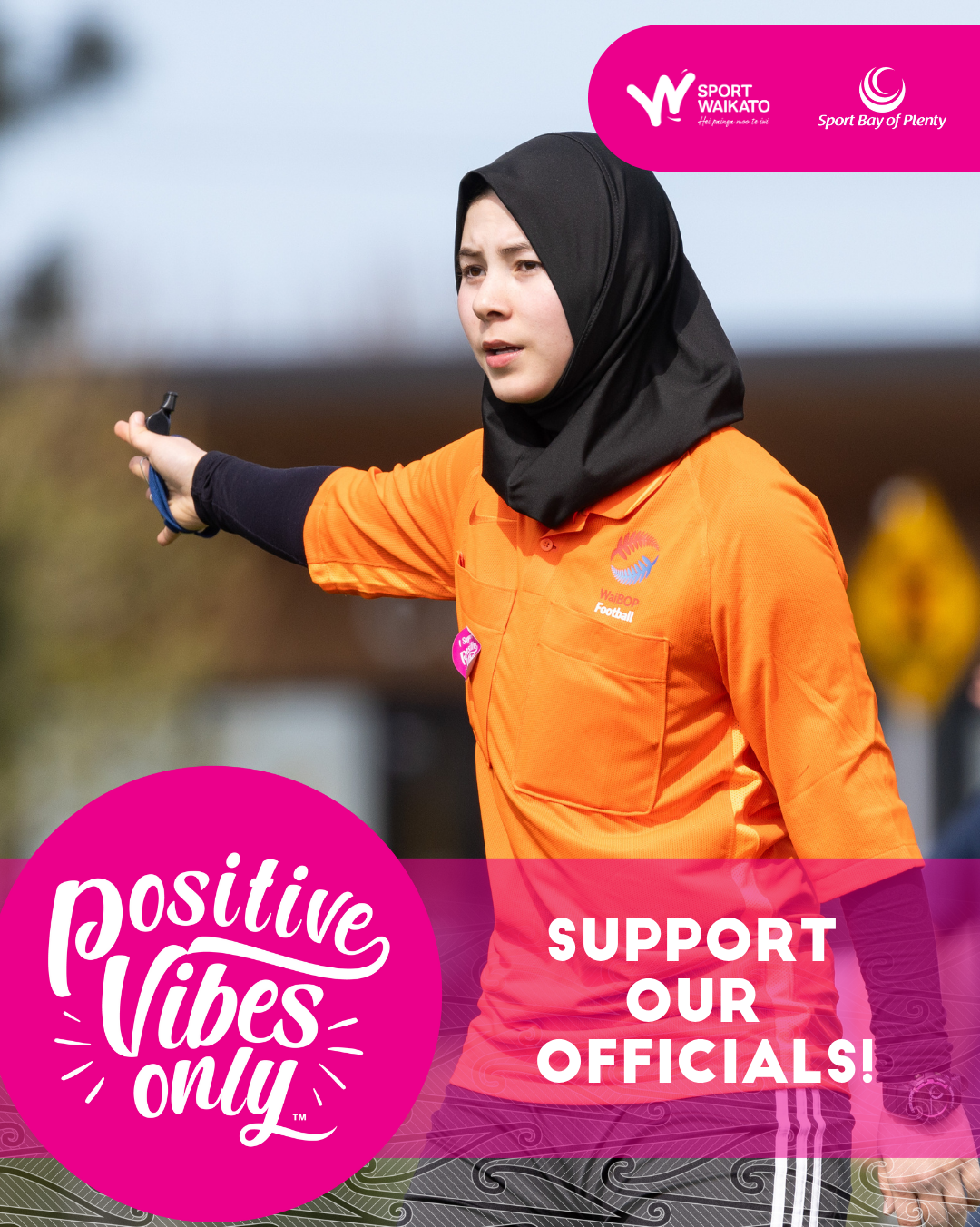
The game went pretty well, they didn’t win but the kids seemed to be enjoying themselves. Your child made some errors, missed a goal but also made some good saves, great passes and tried really hard.
They came off the field smiling, chatting with their friends and you head to the car.
As you head home, you start to analyse the game, giving your child instruction on what to do better next time to avoid the errors that happened today. You’re not being negative, it’s just critique and help so they can do better next time right?
They came off buzzing but now they are just staring out the window. Their mood has changed. And you were just trying to help.
Whilst the tendency may be to unpack every moment of the match or competition, and evaluate every aspect, this process is best led by your child.
Being able to reflect critically, but positively, on a performance is a really valuable tool to learn and improve for next time. It is also a valuable life skill that can be applied in other areas of a young person’s life.
We also want that reflection to be a positive experience that your tamariki and rangatahi find valuable so it can become habitual. Here are a few reflection tips to make that car ride home a positive one for all:
Give them space and time to reflect internally before all the questions. Read the room (or car) – you’ll quickly know if your child is keen to talk about anything – or not!
Your child may prefer to journal, or write things down in a notebook. This is a valuable reflection tool and may lead to them having further conversations with you – or not!
If you are lucky enough for your child to start talking about the match or competition – be a great listener. You can also use guided questioning such as “What were your goals for the game?”, “Is there anything you wish you had tried or done differently?”, “What could you focus on next time?”, “Is there any help or support you need from me?”
If the end goal is learning and improvement for next time, ensure that your child’s car ride home looks like care, feels like love, and sounds like happiness (and maybe includes a pie on the way home!).
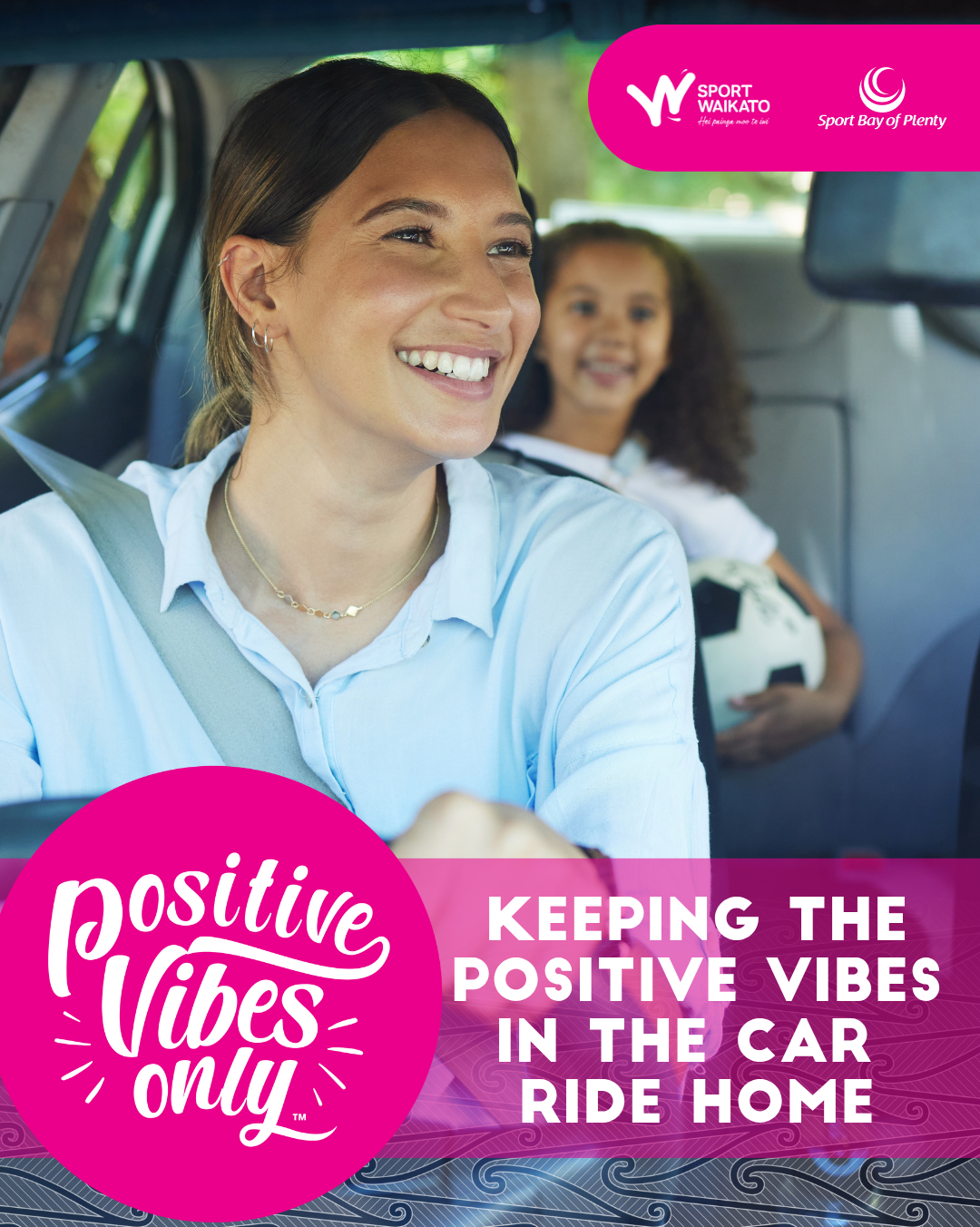
 Members
Members Admin Login
Admin Login